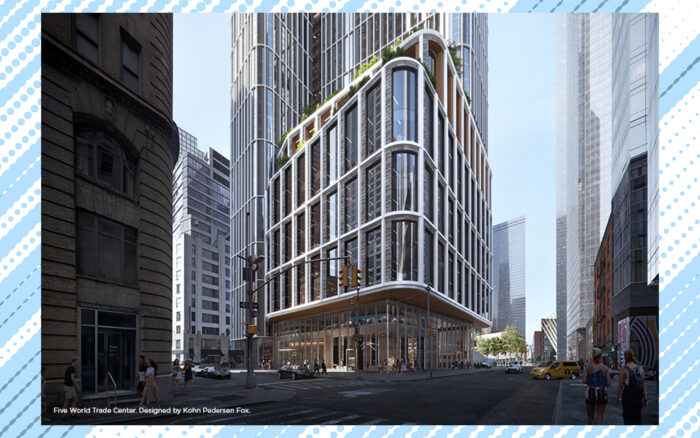Development of 5 World Trade Center is a go, Gov. Kathy Hochul announced at a press conference Thursday, shortly after a vote by the Public Authorities Control Board.
The skyscraper will add 1,200 apartments to the Financial District, with one third of the new units going to low- and moderate-income New Yorkers as well as 9/11 survivors and first responders.
It is the only residential project in the World Trade Center redevelopment, along with being the tallest affordable one in Lower Manhattan — albeit not the 100 percent affordable project some advocates wanted.
“Today we’re taking an unprecedented step forward, reaffirming our commitment to a vital, vibrant Downtown Manhattan that understands that the vitality of this great city hinges on the ability to build more housing,” Hochul said.

Thursday’s vote capped a long, starry-eyed battle from local activists who at one point, shut the project down with demands that every unit in the skyscraper be income-restricted. Critics of that idea said 100 percent affordability in a building with such high construction costs would vacuum up subsidies that could provide far more affordable housing elsewhere.
The proposed 900-foot supertall, to be developed by Brookfield Properties, Silverstein Properties, Omni New York and Dabar Development Partners, endured months of delayed votes over grassroots opposition, but passed the finish line with a package of government funding: $40 million from the Hochul administration, $20 million from the state legislature, $5 million from the Battery Park City Authority and more to come from the Port Authority, the governor hinted.
“We figured out the formula because we didn’t walk away,” Hochul said.
Hochul also took the opportunity to broadcast an executive order she signed last week, noting that her office has $650 million in state discretionary funds to share with communities who help solve the state’s housing shortage.
“Show you’ve got skin in the game,” Hochul said, “and you’ll be rewarded.”
The governor also said her administration plans to “streamline regulations,” sparing the development pipeline from some red tape, though she clarified that environmental, safety and health regulations will remain.
Read more



